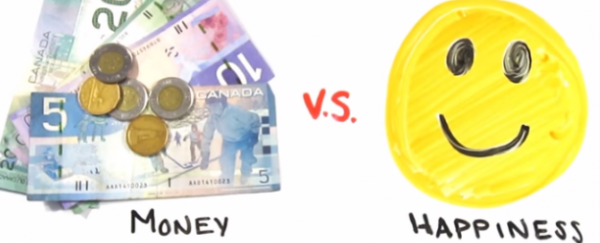Humans are incredibly adaptable creatures - it's how we got to where we are today. As a species, we tend to respond to changes very quickly, especially if those changes are positive. So if we suddenly get a raise or commission, we adapt very quickly to our new-found wealth. But will that make us happier?
"Some studies have shown that in North America, additional income beyond $75,000 a year ceases to impact on day-to-day happiness," says AsapSCIENCE in the video above. "In fact, people who win the lottery often report becoming extremely unhappy. They often end up spending all the money and going into debt, and experiencing ruined social relationships."
So this has to mean money can't buy happiness, right? Well, the science behind it isn't that simple - studies have shown that it's not the amount of money available to us that's making us happy or unhappy, it's how we spend it that counts.
A fascinating study compared the happiness of employees when their company gave a large cheque to a charitable organisation to when the amount was divvied up between them. This gave them the opportunity to give smaller amount of the company's money to a charity of their choosing. The results showed that the employees who gave money to a charity they were interested in experienced greater job satisfaction than those who didn't.
Similarly, when the employees were told they could either spend monetary incentives on each other or themselves, it was found that those who spent money on someone else not only experienced increased job satisfaction, but they also showed a significant improvement in team performance and sales than those who spent the incentives on themselves.
There's a clear correlation, says AsapSCIENCE, between giving money to others and happiness. And surprisingly, it works whether you're giving away a trivial gift, or a making a major charitable contribution. We knew there was a reason - other than pudding - why we loved Christmas. Watch the video above to find out how this correlation can even be seen at the neural level in our brains.
Source: AsapSCIENCE
